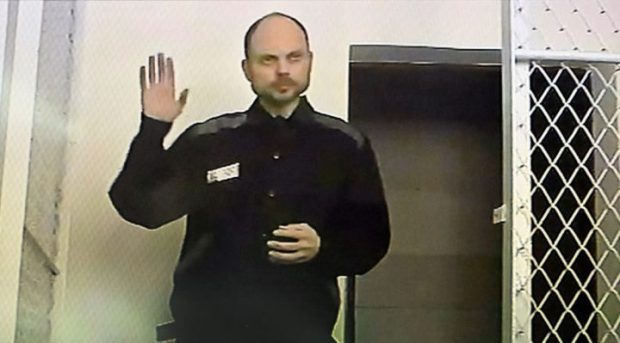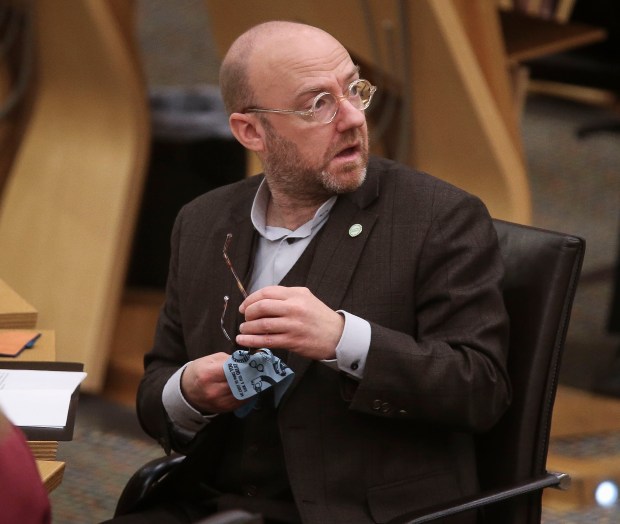Devolution has failed in Scotland. Nothing that follows will be of use to you if you remain in denial of this fact.
Facing up to a quarter-century of needless, self-inflicted constitutional harm is the admission price to any credible conversation about how to go about fixing the problem. Devolution, sold with the assurance that ‘the Union will be strengthened and the threat of separatism removed’, has weakened the Union and armed the separatists.
All historic errors have their guilty men and devolution has an unholy trinity. Labour loves legends, especially those felled on the cusp of greatness, and Donald Dewar — MP at 28, architect of devolution, inaugural First Minister, dead at 63 — ticks all the boxes. The devolution industry mythologised the ‘Father of the Nation’: true enough he had great vision, wit and debating nous, but he was also a wrecker, a constitutional vandal, and an arrogant empire-builder who did more to advance the cause of Scottish nationalism than any leader of the SNP.
Dewar was only able to do this because Tony Blair allowed him to. Blair did not concede devolution: a Scottish parliament or assembly was pledged in manifestos taken to the country by Neil Kinnock, Michael Foot, James Callaghan, and Harold Wilson. You need to go back to 1970 to find a Labour manifesto explicitly rejecting ‘separatism and also any separate legislative assembly’. But Blair’s leadership hinged on upending cherished Labour dogma and yet this particular dogma he convinced himself was part of his modernisation agenda. Blair was, in my view, one of our great prime ministers but with devolution he made a catastrophic error of judgement that did the country immeasurable harm.
New Labour may have set up the Scottish parliament but it was a Tory prime minister who made it permanent — literally. It was David Cameron who amended the Scotland Act to declare Holyrood ‘a permanent part of the United Kingdom’s constitutional arrangements’. It was Cameron who conceded the term ‘Scottish government’. The 1998 Act established a Scottish Executive, and this remained its legal name even after Alex Salmond rebranded it ‘the Scottish government’ — until Cameron changed the law to enshrine Salmond’s terminological power grab.
It was Cameron who enhanced Holyrood’s income tax powers (twice), devolved stamp duty and allowed Scottish ministers to borrow; Cameron who devolved the Crown Estate, key aspects of welfare and social security, and abortion; who handed over control of air passenger duty, the rail franchise, and the British Transport Police. It was Cameron who conceded an independence referendum, after which he proclaimed: ‘There can be no disputes, no re-runs — we have heard the settled will of the Scottish people.’ And that was the last we heard of independence.
That’s the problem admitted and the blame apportioned, so now for the Lenin question: What is to be done? There are the so-called muscular Unionists, some of whom advocate integrationism or at least a return to the status quo ante. On the other side are the devocrats, who deny the problem, or say the answer is more devolution or federalism. Integration is perfectly respectable as a political goal but achieving it in the absence of a referendum to abolish Holyrood, although within the powers of the UK parliament, would be democratically dubious.
Parliament put the matter in the hands of the people; negating their will on devolution would be as morally objectionable as the Remain parliament’s attempts to negate their will on Brexit. Given how bare the constitutional cupboard looks these days, it’s not obvious what powers are left to devolve. As for federalism, it works fine in countries with strong national identities but in this country, where Britishness remains ill-defined and without popular purchase in Scotland, federation would simply furnish separatism with the legal and institutional structures to smooth the transition to secession.
There is an alternative to trying to uninvent the juggernaut or floor the accelerator: reform Unionism. Reform Unionism recognises the harm devolution has done and seeks to balance the democratic mandate for a Scottish parliament with the need to correct the flaws, errors and omissions of the current settlement that threaten to undermine the United Kingdom.
The most comprehensive remedy would be a new Act of Union. This could take the form proposed by Professor Adam Tomkins: legislate for a Union of law, prescribe the circumstances in which constitutional referendums may be held, and require governments and public bodies ‘to act with fidelity towards — and not to undermine — the territorial integrity of the country’. Alternatively, there is my far less learned suggestion: legislate to recalibrate the balance of powers between Holyrood and Westminster, prohibit the use of taxpayers’ money or parliamentary resources on reserved matters, and define the UK as a unitary state where all sovereignty resides with the Crown-in-Parliament.
Others argue for a Clarity Act, modelled on the Canadian government’s response to Quebec secessionism, which gives the House of Commons the power to deny a secession referendum — and even to refuse post facto recognition of an affirmative vote — if MPs deem the question (or the size of majority that voted for it) insufficiently ‘clear’. A UK Clarity Act could set out the necessary conditions for a referendum, the franchise, the final arbiter of the question, and any requirements for a supermajority.
A lot of nonsense has been asserted by nationalists — and conceded by weak-kneed devocrats — about the 2021 Holyrood election delivering a mandate for another referendum. A common advantage of either a new Act of Union or a Clarity Act would be to debunk this myth. Actually, Nicola Sturgeon doesn’t have a mandate for another referendum. It is impossible to attain a mandate for the exercise of reserved powers at an election to a devolved legislature. The only lawful route to secession is through the UK parliament.
As for the oft-squealed objection that not granting another referendum is ‘undemocratic’, we might enquire what other reserved matters the Scottish government may annex simply by referencing them in a devolved manifesto. Is parliament obliged to permit a referendum on the presence of Trident on the Clyde or on whether Scotland wants to be a monarchy or a republic? What if a right-wing populist party won a majority at Holyrood promising a referendum on disapplying the Human Rights Act and the ECHR to Scotland in order to bring back the death penalty? I suspect there would be some swift dialling-down of the democracy chat.
The notion that denying separatists an opportunity to dismantle the UK is undemocratic is absurd when spouted by nationalists and risible when echoed by fainthearted Unionists. The US Supreme Court has recognised the United States as ‘an indissoluble relation… of perpetual union’. Australia’s constitution defines it as ‘one indissoluble Federal Commonwealth’. The Spanish constitution provides for ‘the indissoluble unity of the Spanish nation’. If you would scoff at the suggestion the US, Australia or Spain aren’t democracies, grow a spine and defend the UK’s right to territorial integrity.
There are other avenues still. UK civil servants assigned to devolved administrations could be prohibited from performing duties related to independence unless and until the Westminster parliament permits another referendum. Westminster could legislate an amendment to Holyrood’s standing orders making questions and answers about reserved matters disorderly. The problem is that all these remedies are reactive, geared towards fending off separatism rather than promoting the Union or a UK-wide sense of common unity, purpose and future that could compete with divisive, sectional nationalism. Stopping the break-up of the country is no substitute for addressing why a large minority of Scots are drawn to an outcome that would demonstrably make them poorer. That is where the Union has failed and where reform Unionism offers the opportunity to repair some of the damage devolution has done.
Got something to add? Join the discussion and comment below.
Get 10 issues for just $10
Subscribe to The Spectator Australia today for the next 10 magazine issues, plus full online access, for just $10.




















Comments
Don't miss out
Join the conversation with other Spectator Australia readers. Subscribe to leave a comment.
SUBSCRIBEAlready a subscriber? Log in